Data from the Department of Education shows there were a record 464,749 international students enrolled in Australian universities in the year to July 2024:
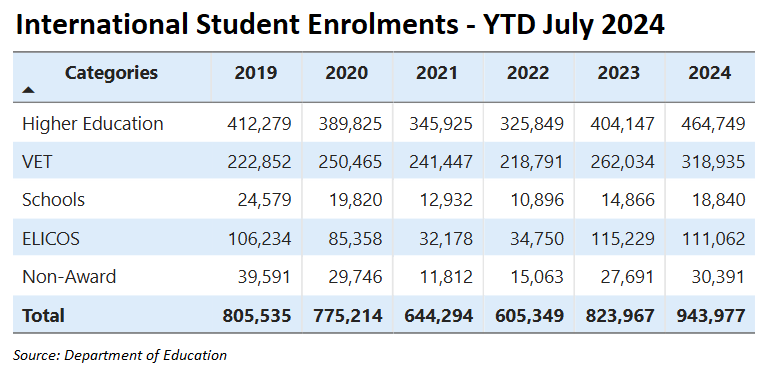
While international enrolments have boomed, domestic enrolment applications collapsed to a decade low at the start of 2024:
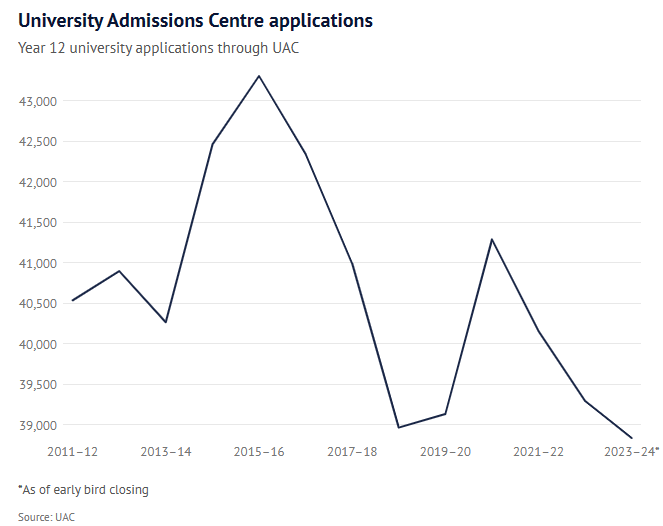
Meanwhile, new analysis from the Institute of Public Affairs (IPA) shows that 25.4% of domestic students who commenced their degrees in 2017 had dropped out, while a record low of 61.8% had completed their degree within six years.
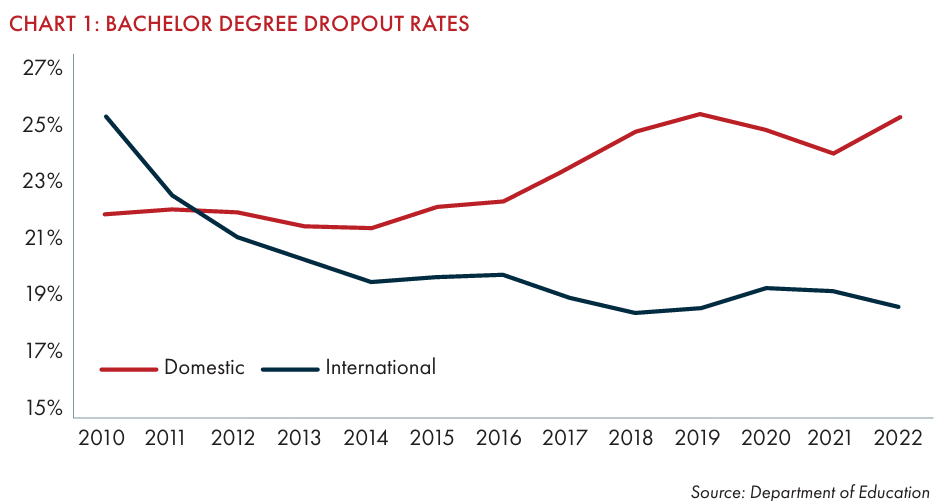
At the same time, international students who pay full tuition fees and cannot access student loans through HECS/HELP were more likely to finish their degrees.
Over six years, 19% of international students dropped out of their studies, 79% graduated, and 2% were still enrolled.
The IPA claims that Australia’s universities have become “degree factories for international students”.
“Since 2000, the number of enrolments of international students has increased by 370%, compared to an 84% increase in domestic students”, the IPA report says.
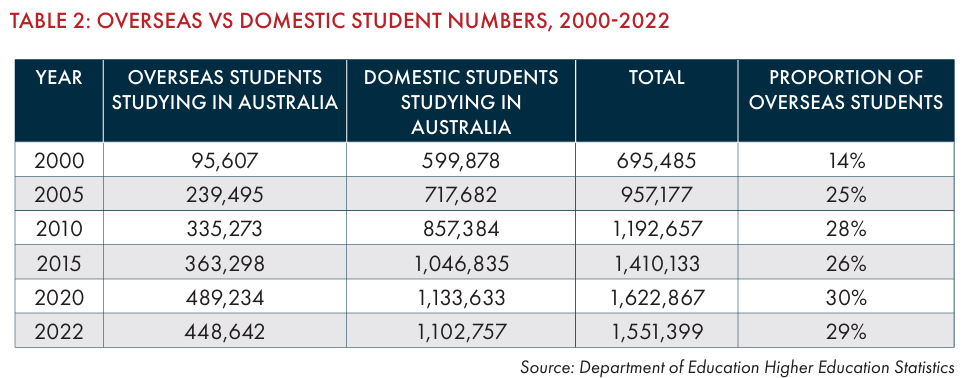
“International students increased from 14% of all university students in 2000 to 29% in 2020”.
“The university model in Australia has shifted away from education and towards the business of maximising revenue, which has led to declining standards and the prioritising of international over domestic students”.
“The current model is perpetuating a cycle where higher overseas student numbers are negatively impacting the university culture, which has led to a higher number of domestic student dropouts which, in turn, encourages a greater reliance on overseas students”, the IPA argued.
I can’t blame young Australians for shunning university, given that degrees have lost much of their worth.
A study by the Mackenzie Research Institute at the Holmesglen Institute in Melbourne found that while university degrees can help you get a job, they do not ensure success.
Although those with a university education are more likely to hold the highest-paying and most prestigious jobs, their share of low-wage occupations is also increasing.
This frequently results in the displacement of individuals with only diplomas and trade certificates, who replace those with little or no further education.
Dr. Tom Karmel, former executive director of the National Centre for Vocational Education Research, stated that the findings called into question Australia’s “never-ending push” to increase the number of degree holders.
“Credentials are becoming increasingly important even in lower paid jobs”, he said.
“Is it skills deepening or is it really just blatant credentialism? It’s probably a bit of both. If everybody had a degree, a degree would be useless”.
One of Australia’s greatest economic paradoxes is that, despite having a huge number of university graduates in the labour market, the country suffers from low productivity growth and “skills shortages” that never ease.
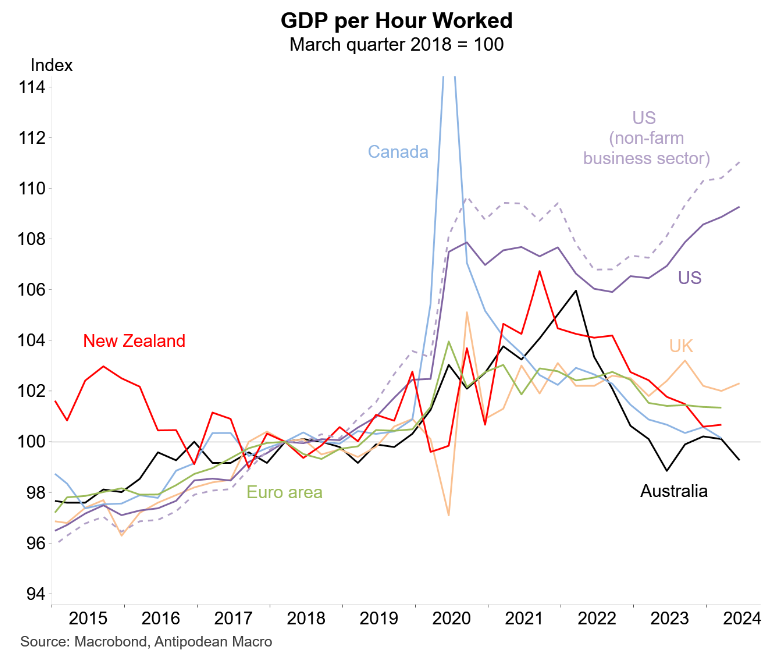
Despite these facts, the Albanese government wants 55% of Australians aged 25–44 to hold a bachelor’s degree or higher, up from around 45% currently.
Achieving this target will inevitably worsen skills shortages in trades, making it harder to build housing and infrastructure.
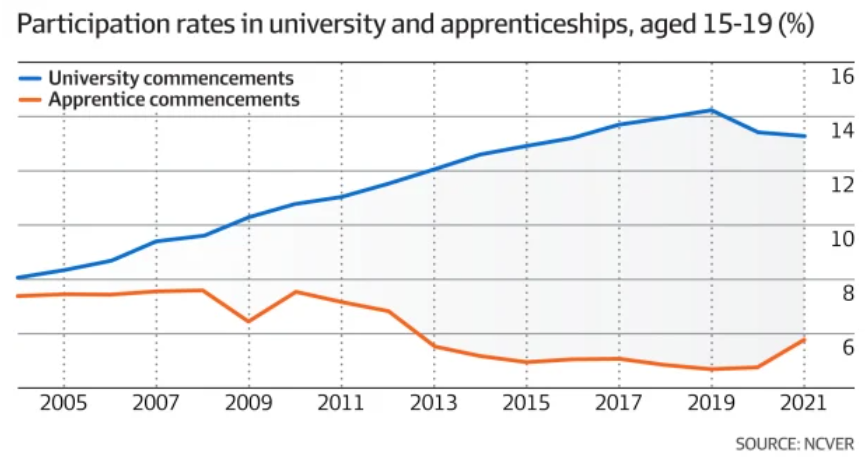
Prioritising universities above vocational or trade schools has never been in Australia’s best interests, economically or socially.

